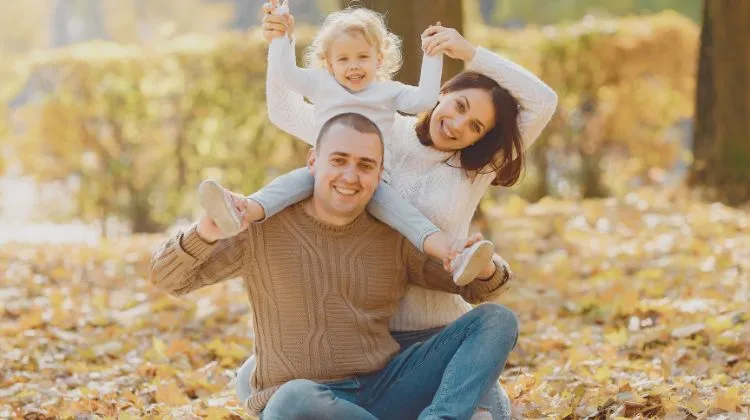As a veteran or a service member, your dedication to serving our country deserves our utmost respect and gratitude. Many people may not realize this gratitude extends to your family as well. This support comes in the form of benefits for dependents of veterans. These benefits help your loved ones access vital resources and opportunities and ease the financial and social burdens associated with military service. Let’s discuss the different programs available, as they can be life-changing to the recipient.
Table of Contents:
- Understanding Dependency and Indemnity Compensation (DIC)
- Navigating Healthcare Options: CHAMPVA and TRICARE
- Empowering the Future: Educational Benefits
- Benefits for Dependents of Veterans: Addressing Specific Needs
- Securing the Future: Additional Financial Assistance
- Ease and Access to Benefits for Dependents of Veterans
- Conclusion
- FAQs about Benefits for Dependents of Veterans
- Conclusion
Understanding Dependency and Indemnity Compensation (DIC)
The Dependency and Indemnity Compensation (DIC) program provides monthly payments to eligible surviving family members of veterans. These surviving family members include spouses, children, and even parents of service members. The primary qualification for this assistance program is the service member’s death in the line of duty or from a service-connected disability.
The support provided is significant. In 2019 alone, 453,000 individuals benefitted from the DIC program, receiving survivor’s pension benefits. That number underscores the importance and impact it continues to have. Surviving spouses make up the majority of beneficiaries, representing 96%, followed by children at 3%.
Who is eligible for DIC Benefits for Dependents of Veterans?
DIC eligibility extends to specific surviving family members of a veteran. Let’s delve into the criteria:
- The service member’s death resulted from a service-connected injury or disease.
- The service member passed away from a non-service-connected condition. However, they must have been considered 100% disabled due to a service-connected issue for a specific duration before their preceding death. That duration can be ten years before their passing or five years from the discharge date.
Navigating Healthcare Options: CHAMPVA and TRICARE
When discussing benefits for dependents of veterans, healthcare stands as a cornerstone of support. Two key programs come into play: CHAMPVA and TRICARE. Each lessens the financial strain on families and is designed to shoulder the weight of healthcare expenses, but they have distinct eligibility requirements:
CHAMPVA (Civilian Health and Medical Program of the Department of Veterans Affairs)
CHAMPVA is available to spouses and children of veterans. But to qualify, the veteran needs to meet specific criteria. They must have a permanent and total disability rating because of service or have died while holding that rating, or it could be because of a service-related cause.
CHAMPVA provides cost-sharing for healthcare expenses, lessening the financial strain on families. Some of the healthcare benefits this program covers include medical, dental plans, and prescription drugs, ensuring comprehensive health and well-being for those eligible.
TRICARE
TRICARE serves a broader spectrum of military personnel, including retirees and deceased service members. But unlike CHAMPVA, eligibility for TRICARE means you cannot benefit from CHAMPVA simultaneously.
If a veteran’s family members qualify for TRICARE, they are no longer eligible for CHAMPVA. TRICARE provides comprehensive coverage, including health care, dental, and prescription drug benefits.
Empowering the Future: Educational Benefits
Education, a powerful tool for growth and opportunity, features prominently in the benefits available for veterans’ dependents. Chapter 35, a pillar of the education support system, plays a vital role:
Chapter 35 Educational Benefits
Chapter 35 aims to equip surviving spouses and children with the means to pursue higher education at VA-approved schools or vocational training. To access these benefits for dependents of veterans under Chapter 35, one of the following must be met. It could be the surviving spouse or child of a veteran who died in the line of duty or because of a service-connected ailment. Or, the service member must have had a 100% disability rating tied to their service for a certain time before their death.
Here’s a closer look at how Chapter 35 can provide support:
- Cover tuition fees, ensuring education doesn’t become a financial hurdle.
- Financial aid for essentials such as school books and supplies, lightening the load for families.
- Assist with housing costs, creating stability for dependents focused on their education.
Essentially, Chapter 35 offers education assistance by easing the financial strains linked to education and fostering personal and professional growth for surviving dependents.
Honoring Sacrifice: The Fry Scholarship
Tragically, some service members have given the ultimate sacrifice since September 11, 2001. This is where the Fry Scholarship, named in memory of Marine Gunnery Sergeant John David Fry, comes in.
Established in 2009, the Fry Scholarship allows children of service members who died on or after September 11, 2001, to pursue higher education with crucial financial support. These education benefits help ease the financial burden of education for those who lost a parent in service to our country.
Benefits for Dependents of Veterans: Addressing Specific Needs
Sometimes, circumstances require specialized help, and the VA extends its hand to meet these needs. Two such programs cater to very specific situations.
Camp Lejeune Family Member Program
Tragically, from August 1953 to December 1987, residents at Camp Lejeune in North Carolina unknowingly consumed contaminated drinking water. Those affected included active duty, reserve and National Guard members, their families, and civilian workers who lived or worked there.
This contamination later revealed significant health consequences, leading to a range of health issues. Service members, spouses, and children who lived at Camp Lejeune during that time are now eligible for reimbursement for some healthcare expenses related to the contaminated water exposure. Some conditions this program covers are bladder cancer, breast cancer, and kidney cancer.
In recognition of this grave situation, Congress passed the Honoring our PACT Act in 2022, which includes the Camp Lejeune Justice Act. This program aims to alleviate the burden on families struggling with the consequences. If a veteran’s dependent experiences any conditions stemming from the contaminated water at Camp Lejeune, the program offers crucial support. This act showcases the VA’s dedication to addressing unforeseen circumstances.
Children of Women Vietnam Veterans
Further highlighting tailored assistance, the Children of Women Vietnam Veterans Health Care Benefits Program stands as a testament to the VA’s commitment to addressing specific situations. Recognizing the health challenges faced by female Gulf War veterans, this program focuses on the health needs of their children. These health challenges include reproductive problems. For example, a study showed 22% of the children of female Gulf War-era veterans, sadly, had minor birth defects.
This unfortunate reality highlights the necessity for programs like this and reflects a compassionate approach to providing much-needed assistance. This crucial assistance program helps ensure a brighter future for the families of those women veterans who bravely served their nation, even in the face of hardships and personal risks.
Securing the Future: Additional Financial Assistance
Along with educational and healthcare programs, benefits for dependents of veterans encompass financial aid. Programs such as the VA Survivors Pension offer a vital safety net. Here’s what you should know about the VA Survivors Pension:
VA Survivors Pension
Designed to support the families of deceased veterans, the VA Survivors Pension provides monthly, tax-free payments. However, you must meet specific conditions to be eligible.
The deceased veteran must have served over 90 days in active military duty, including at least one day during wartime. Their discharge must be honorable or anything other than dishonorable. This pension honors the veteran’s service and provides essential financial support for those they’ve left behind. The VA form 21P-534EZ helps determine eligibility.
Along with this financial lifeline, the VA Survivors Pension may include:
- Aid for the surviving spouse, recognizing the potential hardship, in the form of financial counseling or career guidance.
- Education benefits, ensuring the surviving spouse has the resources for personal growth.
The VA Survivors Pension program demonstrates a commitment to the families of veterans. It goes above and beyond basic monetary assistance with its wide range of services and provisions. Additional assistance could involve aid for a housebound spouse, veterans with limited income, or parents.
Ease and Access to Benefits for Dependents of Veterans
One question you may have is about obtaining these benefits. Thankfully, states have specific resources for you and your family, including detailed brochures outlining various benefits. They even have a list for those seeking specific information relevant to each state. These lists recognize the unique needs and programs of each state.
To learn more about this helpful program, check your state’s Department of Veterans Affairs and the Benefits by State directory.
Conclusion
Benefits for dependents of veterans aren’t just about financial assistance, though that help is a critical component. They are a profound recognition that the service and sacrifice of our veterans extend beyond their years in uniform. From ensuring quality healthcare and supporting educational journeys to offering crucial financial safety nets, these programs aim to uplift and empower families.
FAQs about Benefits for Dependents of Veterans
Do Adult Children of Veterans Get Any Benefits?
Yes, in specific situations. Programs like the Survivors’ and Dependents’ Educational Assistance (DEA) program might help adult children pursue education and training. Eligibility depends on factors such as the veteran’s disability status or whether they died in service.
Are Dependents Entitled to VA Benefits?
Whether dependents receive benefits hinges on specific criteria. For instance, DIC might cover spouses, unmarried children under 18 (with extensions possible), or certain dependent parents. Education benefits, such as Chapter 35, have their criteria.
Checking the VA website or speaking with a representative clarifies who’s eligible based on the exact benefit sought.
What Benefits Does a Child of a Military Veteran Get?
The benefits a child of a military veteran receives depend on the veteran’s service record, such as disability or death in service, and the child’s age and student status. Potential benefits include DIC, CHAMPVA health coverage, education programs (Chapter 35, Fry Scholarship), and possibly home loan benefits, especially for surviving spouses.
Do I Get My Husband’s VA Benefits If He Dies?
As a surviving spouse, you could be eligible, but benefits aren’t automatic. Eligibility hinges on the nature of your husband’s death (service-connected or not) and factors like your marital status at the time of his passing. You might qualify for DIC, Survivors Pension, healthcare through CHAMPVA, and potentially educational or home loan benefits. It’s essential to consult the VA for precise details and application procedures.
Conclusion
Benefits for dependents of veterans are in place to support those families. By understanding the available resources and actively engaging with the support system, you are empowered to shape a brighter, more secure future. That access ensures that those who served our nation are honored and that their families find the assistance they deserve.
Navigating these programs may seem challenging. However, your effort is a small gesture to acknowledge and repay the sacrifices they’ve made for our country.



Awesome information. Thank you excellent work.